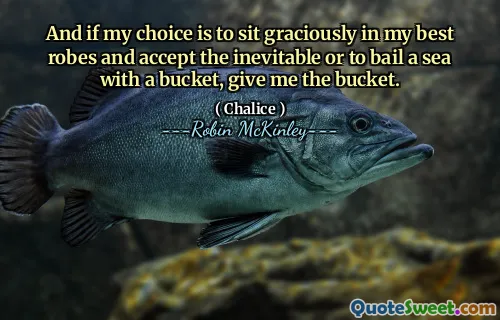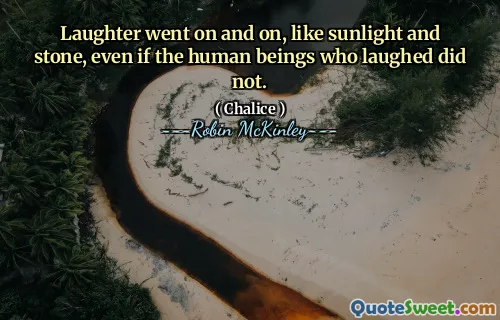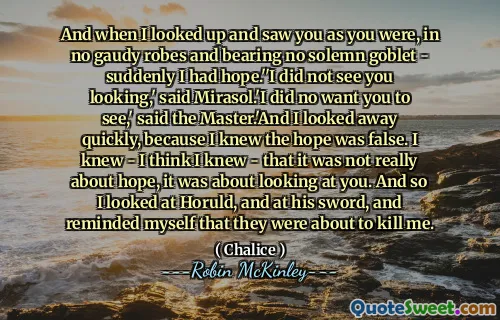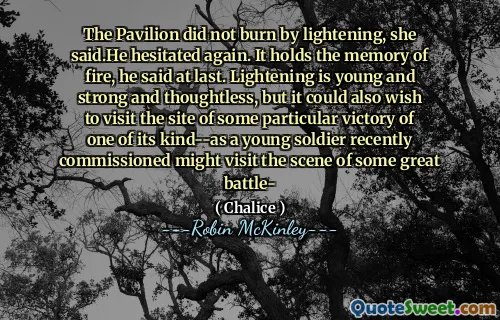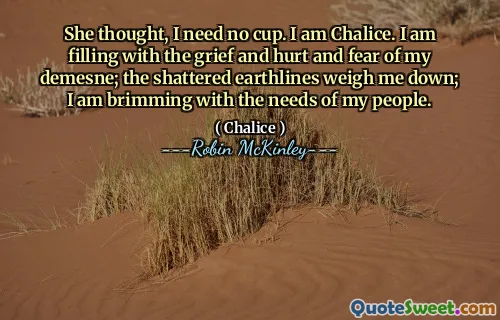
And when I looked up and saw you as you were, in no gaudy robes and bearing no solemn goblet - suddenly I had hope.''I did not see you looking,' said Mirasol.'I did no want you to see,' said the Master.'And I looked away quickly, because I knew the hope was false. I knew - I think I knew - that it was not really about hope, it was about looking at you. And so I looked at Horuld, and at his sword, and reminded myself that they were about to kill me.
The passage highlights a moment of despair mixed with a fleeting sense of hope. The speaker, initially uplifted by the sight of another person devoid of pretension, realizes that the hope they felt was illusory. The Master admits to not wanting to be seen, suggesting a deeper sense of vulnerability and the burdens of expectation that come with being in a position of authority. This moment underscores the importance of connection, yet also the pain of recognizing its potential futility.
Mirasol's response reflects an acknowledgment of this complicated emotional landscape. The realization that her hope was based on an idealized perception rather than reality leads her to divert her attention to more immediate concerns, such as Horuld and the imminent threat he poses. This shift illustrates the struggle between the desire for hope and the harshness of one’s circumstance, encapsulating a poignant theme of the narrative where hope is intertwined with the recognition of danger and reality.
